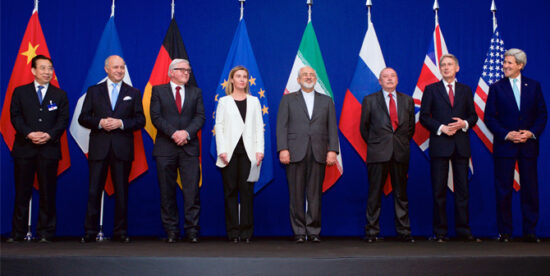
After grueling talks, and several extended deadlines, negotiators have reached a landmark deal aimed at reining in Iran’s nuclear program. The new Iran deal limits Iran’s enrichment capacity and research and development for 15 years. What does this mean for those in the international exchange world?
Barbara Slavin, Washington correspondent for Al-Monitor and a senior fellow at the Atlantic Council, where she focuses on Iran, recently joined Global Ties U.S. to talk about the Iran Nuclear Deal with our members.
Slavin kicked off this timely discussion by explaining the important aspects of the non-proliferation deal with Iran agreed to in July. She emphasized that one of the most important aspects of the deal is that it caps Iran’s stockpile of low enriched uranium at 300kg for 15 years. That is only a quarter of the amount needed to make a single nuclear device. She then continued to talk about the other benefits that would come from a signed deal: “For your purposes… one of the most important aspects is the impact that it is going to have on Iranian society and civil society in particular, and on people to people exchanges between the United States and Iran.”
Barbara reminded us that Iranian President, Hassan Rouhani, has said that he is very supportive of exchanges. She emphasized that, “we’ve seen more athletes coming into the United States…musicians [and] artists are beginning to go back and forth and we have seen more academics beginning to go back and forth.” There is a commitment from both governments to increase people to people exchanges that can be mutually beneficial to both nations.
She also mentioned the growing number of Iranian students who study in the United States. Though there were 50, 000 students studying in the U.S. before the Iranian revolution, now there are just 10, 000, a number that is slowly climbing.
There is a commitment from both governments to increase people to people exchanges that can be mutually beneficial to both nations.
These unprecedented bilateral negotiations pave the way for more opportunities for exchanges. Simply having a dialogue between Iran and the United States, a dialogue that had not been seen since the Iranian revolution, shows how the attitude of the Iranian government is changing. Barbara expressed that this could set the precedent for future conversations between the two nations on other important issues of the region.
Interested in learning more about exchanges and the next steps with Iran? Global Ties U.S. was recently featured in a Newsweek Magazine article on exchange programs between the U.S. and Iran. To learn more about the Iran deal and the impact it will have on exchanges read Barbara’s article at the Atlantic Council’s website, and learn more about IIE’s push for expanded exchanges with Iran. You can continue the conversation by following Barbara on Twitter!
By Zuleyma Ramirez, Global Ties U.S.
